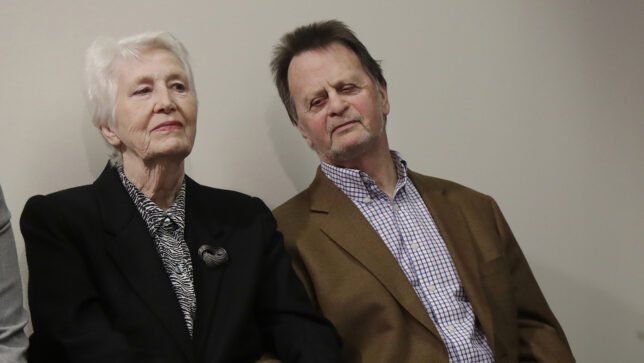The U.S. Solicitor General on Tuesday dealt a blow to Monsanto owner Bayer AG, advising the U.S. Supreme Court that it should deny the company’s request for a review of a key Roundup cancer trial loss, Carey Gillam on UnSpun reported.

Source: UnSpun
Bayer has seen the Supreme Court as its last and best hope for putting a stop to the flood of lawsuits filed by tens of thousands of people claiming exposure to Roundup weed killing products caused them to develop non-Hodgkin lymphoma (NHL).
The brief from Solicitor General Elizabeth Prelogar states that “There is no sound reason for the Court to grant review…”
Bayer, which bought Monsanto in 2018, filed its petition to the high court in August, asking the court to review the Ninth Circuit Court of Appeals’ decision that affirmed the district court’s judgment in Monsanto’s 2019 trial loss to plaintiff Edwin Hardeman. The jury in the case agreed with Hardeman’s attorneys that exposure to Monsanto’s glyphosate-based herbicide was a cause of Hardeman’s NHL and that Monsanto failed to warn of the risks despite decades of science showing links between the herbicide and cancer.
Hardeman was awarded approximately $80 million by the jury, but the award was cut by the trial court judge to roughly $25.2 million.
Bayer did pay Hardeman as it awaited word from the U.S. Supreme Court, but accompanied the funds with a letter warning him that he may have to repay the money if the company was successful in getting a reversal by the U.S. Supreme Court.
Bayer maintains Monsanto’s glyphosate herbicides do not cause cancer, and it additionally argues that the Federal Insecticide, Fungicide, and Rodenticide Act (FIFRA), which governs the registration, distribution, sale, and use of pesticides in the United States, preempts “failure-to-warn” claims by Hardeman and other plaintiffs in the Roundup litigation. Because the Environmental Protection Agency (EPA) has approved labels with no cancer warning, failure-to-warn claims should be barred, the company maintains.
In addition to the FIFRA issue, the company urged the Supreme Court to also address whether or not the Ninth Circuit’s standard for admitting expert testimony “is inconsistent” with precedent and federal evidence rules. Bayer argues that the admission of expert testimony in the Hardeman case “departed from federal standards, enabling plaintiff’s causation witnesses to provide unsupported testimony on the principal issue in the case, Roundup’s safety profile.”
The Solicitor General’s brief states that “FIFRA does not preempt respondent’s claims” and found that the evidentiary ruling by the court of appeals was proper.
The Solicitor General wrote that Bayer’s request on the federal rules issue was “particularly misconceived.”
In a statement, lawyers for Hardeman applauded the findings.
“The Solicitor General correctly determined that Mr. Hardeman’s claims are not preempted and told the Supreme Court it should leave the verdict alone,” Hardeman’s legal counsel Aimee Wagstaff and Jennifer Moore said in the statement.
“Despite paying billions of dollars to other Roundup plaintiffs, Monsanto has refused to resolve Mr. Hardeman’s case. Instead, Monsanto has spent the last three years putting the Hardeman family through an unbelievable amount of stress. We are beyond grateful that we are one step closer to giving the Hardemans the resolution they deserve.”
Bayer did not immediately respond to a request for comment.


















